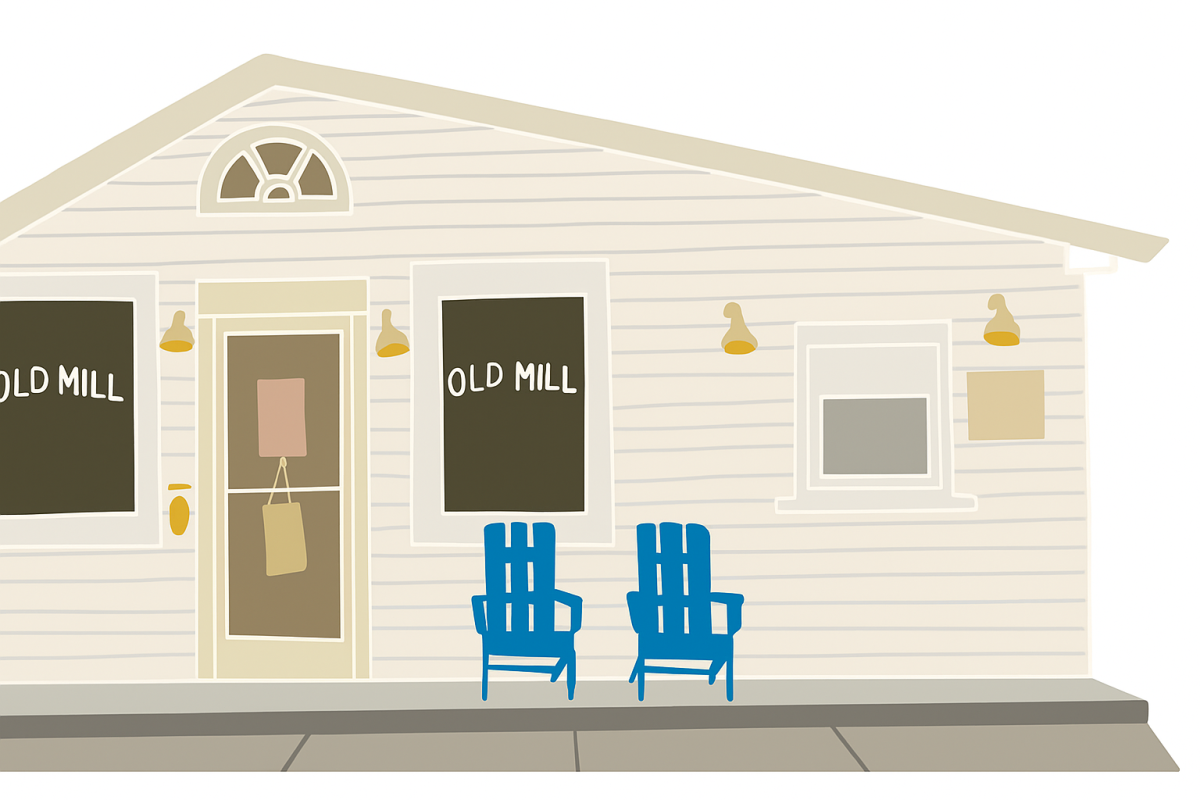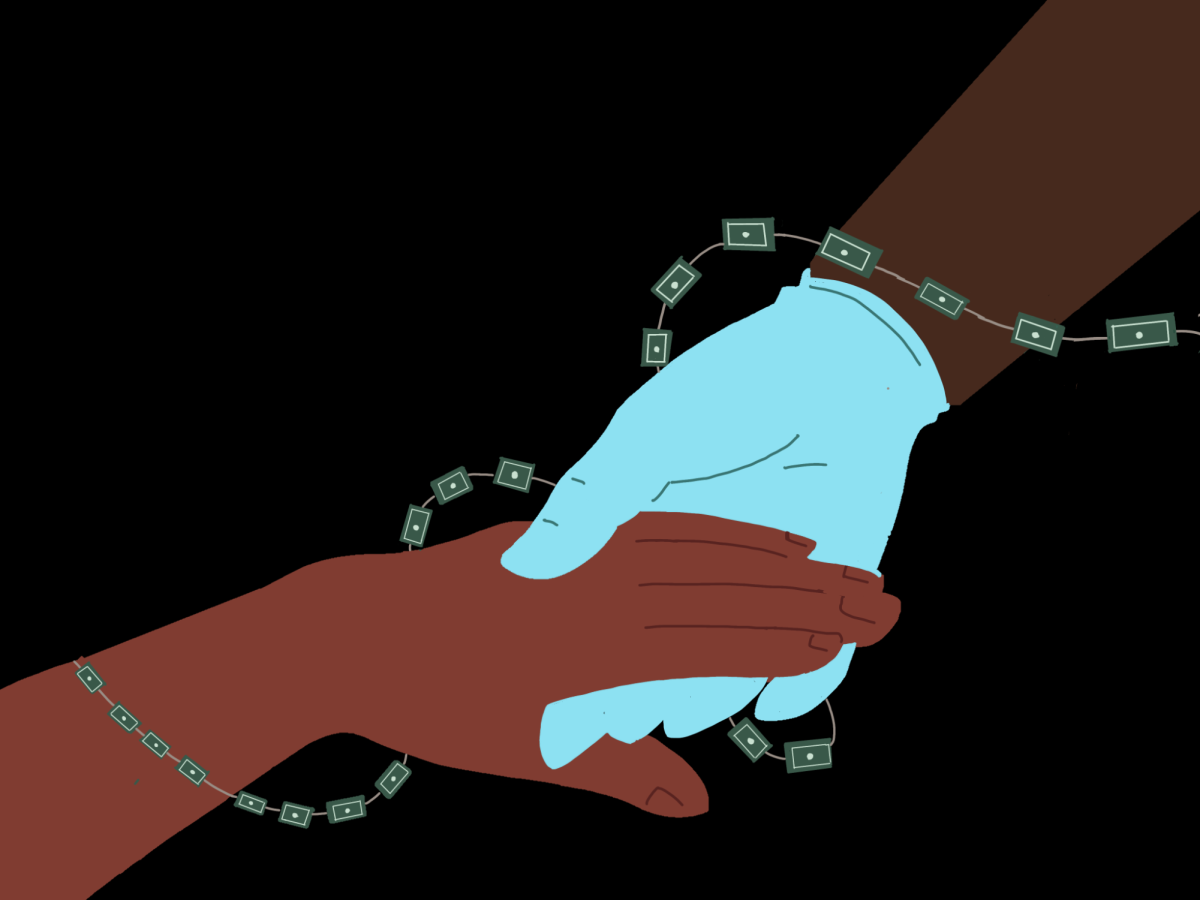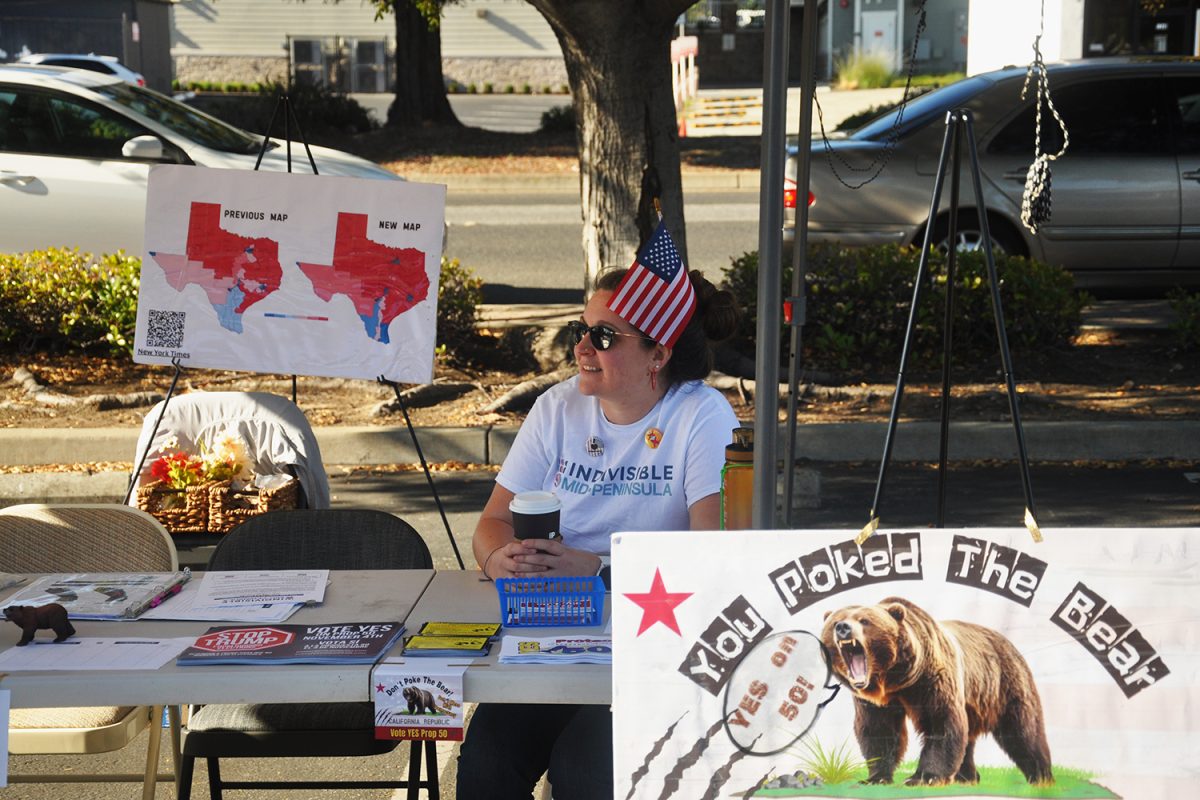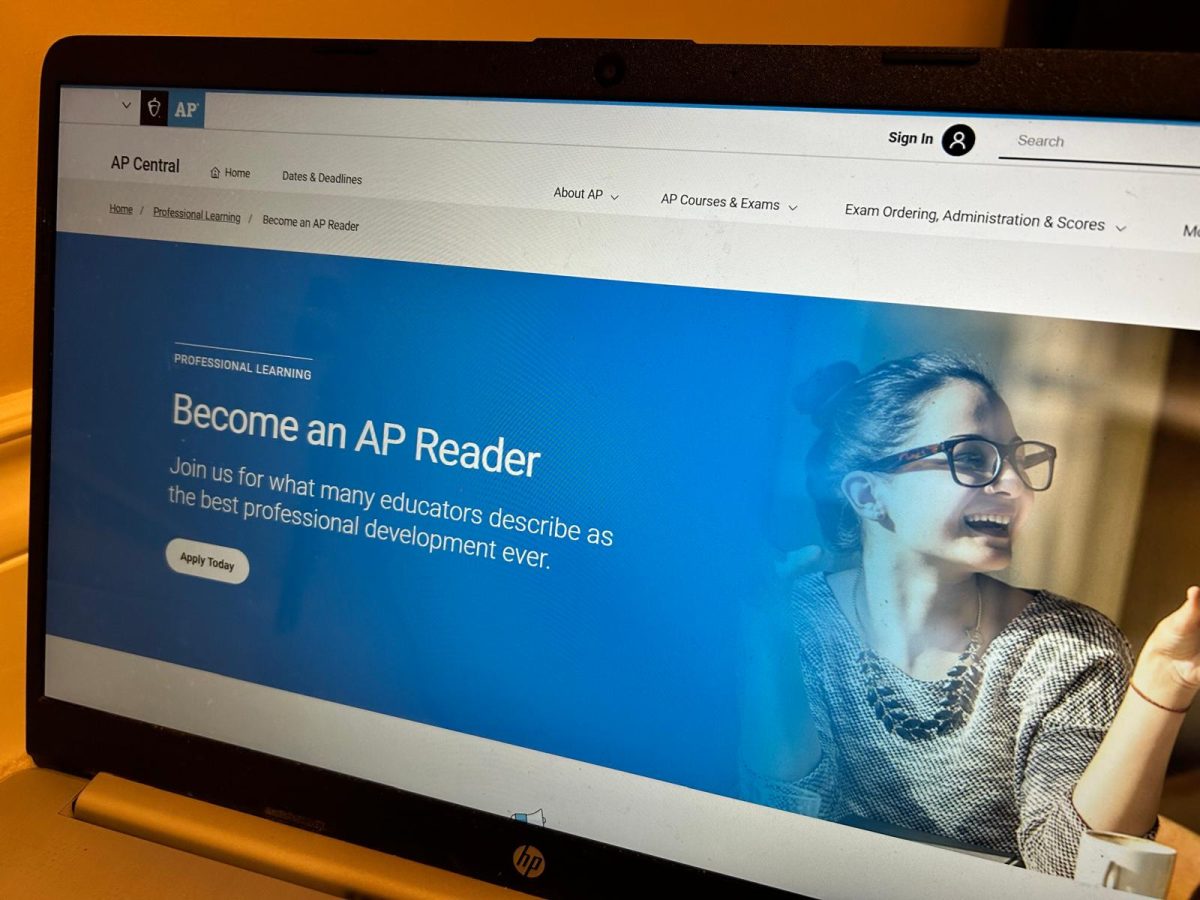Playing the period game
Athletes explain the impact of menstruation on their sports
December 21, 2022
The steady raps of the racket striking against the birdie along with the short, stifled squeaks of shoes against the floor filled the gym as junior Anika Karandikar played her last Badminton match of the day. She was maintaining a steady lead, and then, she felt it. A sluggish discomfort creeped down her stomach, followed by a strong clench — it was her period. The ease that came with her movement across the court disappeared all of a sudden and the game seemed to become more distant.
“I was [thinking], ‘What should I do? Should I wait until the game is over or should I leave in the middle?’” Karandikar said. “We [won] the game pretty quickly, so it was fine. I did not tell my coach because I was afraid of what he might say — I didn’t want to bother him because I didn’t know how he would react.”
Similarly, senior and soccer player Saanvi Mantripragada recalls a time when she hesitated to talk to her coach about her period in her freshman year on a game day. Mantripragada had severe period cramps and didn’t have any pain medication with her that day. Although she tried to push herself through pregame warmups, she found the pain unbearable and talked to her coach about it, who let her sit out for the game. While Mantripragada says exercising helps her relieve some menstruation pain, she highlights the importance of resting for players if the pain is too much.
“That was the only severe time, [but] period pain comes on a large spectrum,” Mantripragada said. “I think that players themselves are the best judgment of how much pain they can tolerate, so I don’t think they should be forced to play a sport [if] they can’t physically do [it].”
Health specialist Brooklyn Sylve, who has also taken on the role of Student Injury Prevention Specialist, echoes Mantripragada’s sentiment and says she has had several athletes seek help from her due to period symptoms such as cramps and lightheadedness impeding their performance.
“A lot of the stigma is that periods are not as bad as they seem and that’s just not the case,” Sylve said. “I don’t think that we should be minimizing [players’] concerns. If someone needs a break, then they should absolutely take a break because you never know how it’ll affect them emotionally. Nobody wants to be embarrassed by their period or ashamed that they’re having this pain.”
Senior and swimmer Annika Lee says that periods could also present a problem since they can take athletes “out of commission” although consistent practice is essential for a player’s growth and preparation for competitions. However, Lee believes that coaches and teams should be understanding of athletes who are unable to play, despite the inconveniences it creates.
“The coach should try subbing them out for someone and asking them to contribute [in] a different way,” Lee said. “But in a team sport, [if] there isn’t someone who can sub in, I think it puts the coach in a tough spot, especially because games cannot be rescheduled just for one person.”

Field Hockey Assistant Coach and MVHS alum ‘16 Amelia de Leon says that while athletes sitting out may put some pressure on the team — especially for the field hockey team this past season, which had fewer players than usual — athletes are the ones who tend to put most of the pressure on themselves to play during games. However, she believes that athletes should respect their bodies and know their limits.
“We often view being committed to a sport as giving 100% every day, and performing at your peak is not the same every day for anyone,” de Leon said. “If you can’t come to practice because of how you feel, that’s just what that day is and that doesn’t mean you’re less committed.”
Additionally, coaches are not legally permitted to give athletes medication such as painkillers, so de Leon says that coaches have their “hands tied up” when it comes down to what they are able to do to help. De Leon says that there was at least one athlete every week who was “either not present at all or are present and limited in what they feel comfortable doing” due to their period.
Sylve emphasizes the importance of athletes advocating for themselves to their coaches and keeping track of their menstruation cycles to find any irregularities, but she also recognizes the courage it takes for athletes to be vocal about their period.
“I can tell that it takes a lot out of [athletes] to [seek help] when they’re on [their period],” Sylve said. “I just don’t think that women should be ashamed of their periods and being able to have that conversation. I want them to know that they need to do whatever is necessary for themselves during that time.”
Karandikar, Lee and Mantripragada agree that their coaches do not foster an open conversation about periods among the team. While Lee finds that such a conversation would be awkward, Karandikar says that even though it might be awkward to bring periods up in a co-ed team, it should be normalized and the stigma around it should be reduced. Additi
onally, Mantripragada believes that since her coach is coaching a girls team, it could be helpful for him to clarify to the team at the beginning of the season that he is open to talking about menstruation. She also believes this conversation could also be beneficial in introducing the correlation between periods and physicality to athletes who are unfamiliar with it.
When it comes to talking about her period, Karandikar feels comfortable discussing it and the symptoms that come along with it with her friends within the team. Mantripragada also finds it easy to talk about it with her teammates.
“People who have [their period] will be like, ‘We’re synced!’ [and] it’s a funny way of how we bond through our pain,” Mantripragada said. “I think we’re a lot more open about it because we all experience it and instead of a taboo topic, we’re open about talking about the pain levels and all of that.”
De Leon says she and her teammates had these conversations back when she was on the team and everyone was supportive of each other, and hopes the same goes for current players. The field hockey team room is stocked with period supplies by seniors every season, which de Leon feels is an indicator that the team is supportive and comfortable when it comes to periods. Moving forward, de Leon says that coaches should include menstruation in the team health check-ins that happen during practice.
“It’s just not part of the ‘syllabus’ that we have of things that we talk about,” de Leon said. “We talk about personal health in terms of hydration and nutrition, but we don’t really have a conversation about [periods] formally. It’s just knowing that it’s really important to know your body, and it’s something we owe, especially teenagers, to talk about — it’s something we can try to add.”
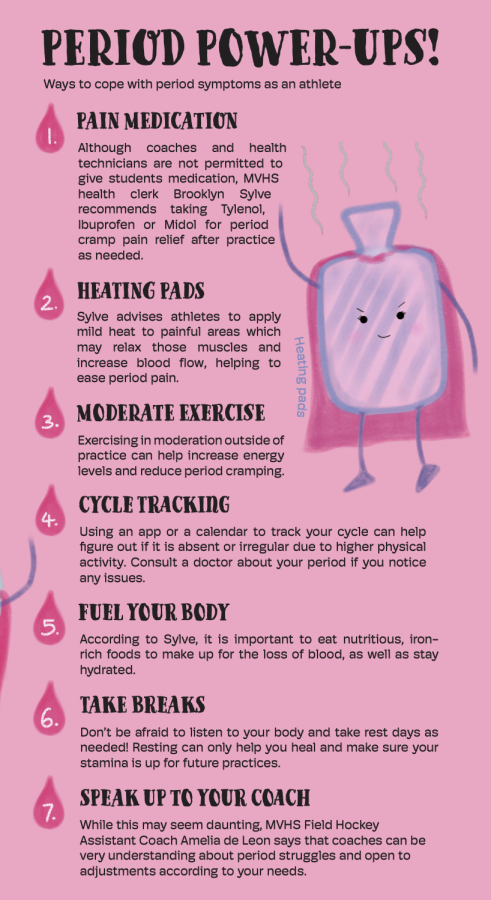
This story was originally published on El Estoque on November 12, 2022.


